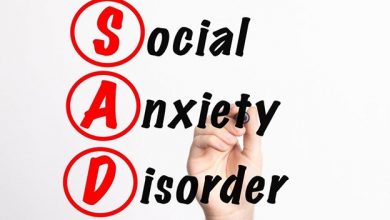How To Overcome Anxiety
Safe ways to deal with anxiety

Learn to Manage your Anxiety
Anxiety is a natural reaction to being threatened. People become anxious, scared, or stressed as a result of it. It is normal for everyone to experience anxiety from time to time.
If a person has extreme levels of anxiety on a regular basis and it affects their day-to-day life, they may have an anxiety disorder. Anxiety sensations might endure a long period or be out of proportion to a person’s condition.
Anxiety manifests itself in a variety of ways. Anxiety can be induced by certain situations or duties, such as public speaking or driving, also, a person may also be concerned about their health, certain bodily functions, or even relationships.
When confronted with particular items, locations, or events, a person may experience intense anxiety. This is usually referred to as a “phobia” by mental health practitioners.
Anxiety can make you feel agitated, concerned, tense, and difficult to relax.
Dizziness, a churning sensation in the stomach, nausea, and sweating are all possible side effects.
Tips to Overcome Anxiety
1. Coping Methods
Anxiety coping tactics are recommended by the Anxiety and Depression Association of America (ADAA):
Relaxation: Yoga, meditation, breathing, massage, and other relaxation practices can all assist a person deal with anxiety.
Diet: Maintaining a healthy body requires a well-balanced diet that includes regular meals and healthy snacks. Anxiety can be reduced by avoiding alcohol and coffee.
Sleep: Getting adequate sleep each night might assist a person in feeling better capable of dealing with anxiety.
Achievable objectives: Rather than striving for perfection, a person might strive to achieve their best.
This can make a person feel better about their accomplishments and reduce the amount of pressure they place on themselves, for example, taking a step back from anxious sensations might help put things into perspective and make them appear less frightening and more in your control.
Support: Talking to friends and family and a health professional for anxiety support can assist usually a person to overcome their anxiety or just reducing it to normal levels to live a better life.
2. Inhale Deeply
Deep breathing can help you relax and unlike most popular opinions… you don’t need to worry about counting out a set number of breaths but just to concentrate.
So, instead, concentrate on breathing and exhaling evenly. This will help you to calm down and recenter your thoughts and to stay focused on your daily activities, tasks, creativity, etc.
Recommended read: How to control your emotions
3. Stick to the 3-3-3 Rule
Take a look at your environment and write down three things you see, then describe three of the noises you hear.
Finally, move your ankle, fingers, or arm in three different directions.
This mental method will help you focus your mind and bring you back to the present moment whenever your mind feels like it’s going 100 miles per hour.
4. Simply Take Action
Any activity that disrupts your stream of thinking, such as standing up, taking a stroll, or throwing away a piece of garbage from your desk, will help you restore control.
By taking action we are developing and enhancing our discipline and our mental strength, by taking action on forcing ourselves to do something we’re not limiting ourselves and our ways of thinking anymore.
5. Straighten Your Back
When we are concerned, we bend over to protect our upper torso, which houses our heart and lungs.
Pull your shoulders back, stand or sit with your feet apart, and expand your chest as an immediate physical antidote to this natural reaction. This helps your body realize that it is regaining control.
6. Avoid Sugar
When you’re worried, it’s easy to go for something sweet, but research suggests that consuming too much sugar might exacerbate nervous feelings.
Instead of going for the candy bowl, drink some water or eat some protein, which will offer your body a steady source of energy that it can use to recuperate.
7. Inquire About a Second Opinion
“Saying them out to someone else might help you see them clearly for what they are,” says one expert.
Call or text a friend or family member and go over your anxieties with them, It even may also be beneficial to write out your anxieties in a notebook and take a look at it to remember what you need to focus on and what you need to improve.
Check My Private Library For Psychology
…
Would You Like To Be Able To Help, Heal, And To Change Your Life And The Life Of Many People By Learning New Skills?…
Below Are The Easiest And The Most Effective Ways To Make It Happen!
- Become A Coach And Start Earning By Helping Other People
- Master Your Profession, Your Passion, Or Something New
- Be Part Of The World’s Leading Experts And Find Success
- At-Home Treatment For Children With Anxiety
Other Important Resources
- Improve Your Life Today (Book)
- IG: Personal / Eagle Beagle Spirit
- Visit Our Shop or Become An Ambassador
Always fighting for your rights and your daily improvement,
Juan Plamen




